Exploring the Prophet Muhammad ﷺ: Five Essential Books for Non-Muslim Readers by Non-Muslim Authors
Prophet Muhammad's ﷺ life and teachings are of utmost importance to Muslims worldwide. The teachings and guidance provided by Prophet ﷺ, are the foundation of Islamic faith and practice. His noble teachings have inspired billions of believers for centuries, fostering in them the matters of spirituality, ethics, and social behavior. As a result, an extensive number of explorations of the life of Prophet Muhamad ﷺ has been witnessed in history, taking out values from his life for various religious and social transformations. One of Prophet Muhammad's ﷺ notable admirers is Michael H Hart[i], who ranked him as the most influential figure in history in his book, The 100: A Ranking of the Most Influential Persons in History.
Moreover, over the years, the interest of exploring the Prophet's ﷺ life has been in increase. Even non-Muslims have taken interest in examining his life and the significant changes he brought to pre-Islamic and Arab cultures. Thus, a huge proportion of these scholars believe him to be a key historical figure with social and political renaissance, both in pre-Islamic times and the broader Arab world. Yet, it's important to note that, alongside the praise, some scholars have critiqued Prophet Muhammad ﷺ. The major reason for their criticism is due to the historical context and varying interpretations of events.
In this exploration, we look into five books penned by non-Muslim authors about Prophet Muhammad ﷺ. These works shed light upon the life of the Prophet ﷺ and the transformative impacts he has given to the world. In numerous accounts, it has been accentuated that those who are in search of a deeper understanding of Islam and its broader context, should explore the life of the Messenger ﷺ, after all he is a perfect epitome of religious figure as well as transformative force in history.
- Muhammad: Prophet of Peace Amid the Clash of Empires
In the book, Muhammad: Prophet of Peace Amid the Clash of Empires, author Cole[ii] gives a thorough account of what occurred in Arabia during the 7th century when tribes were in conflict and empires clashed. In fact, as a central theme of this book, Prophet Muhammad ﷺ has been portrayed as a diplomat and mediator. Not just that, he further emphasized how the Prophet ﷺ ensured a peaceful environment in Arab societies, which included making treaties with different tribes and formulating better socio-cultural norms. This aspect of the author showed the diplomatic expertise of the Prophet ﷺ.
Moreover, in the book, it's obvious that Cole really focuses on history and tries hard to be accurate in an academic way. In order to make it accessible for scholars and actual seekers of Islamic history, the author has referred to both primary and secondary sources. However, the reader has to bear in mind that the style of the books is quite academic, and thus it may not interest those who are not okay with reading about academic topics. Even so, it has given extensive attention to the peacemaking attitude of the Prophet ﷺ, the spiritual and moral aspects of his life has not been attended so much as it is expected to be.
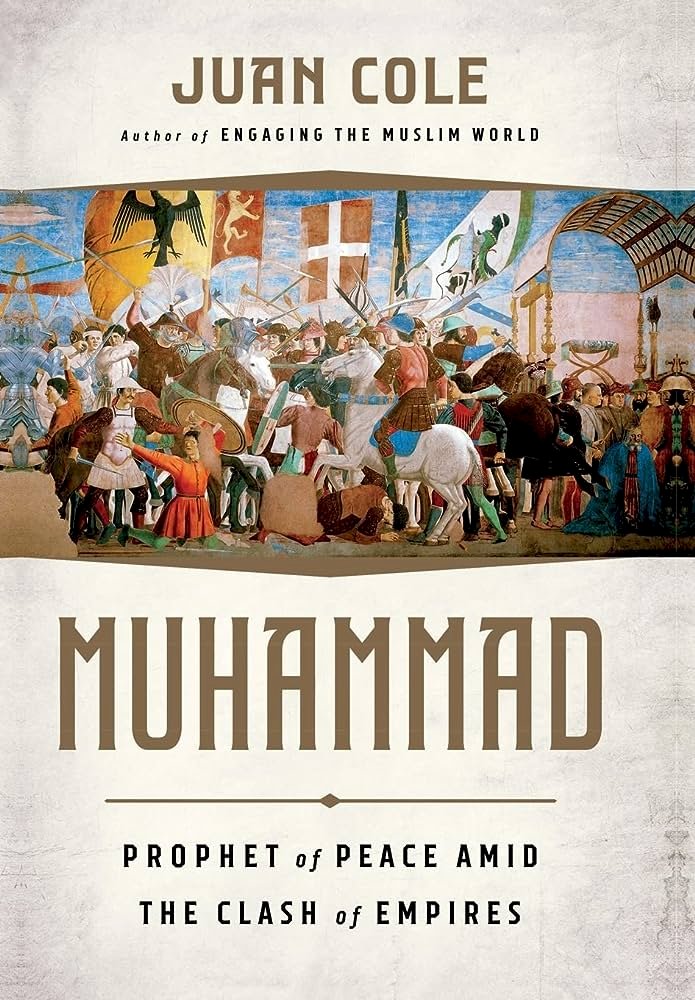
- Muhammad and the Believers: At the Origins of Islam
Muhammad and the Believers: At the Origins of Islam by Fred Donner[iii] is an academic exploration of how Islam prospered in 7th century Arabia. This book establishes a better understanding of the Prophet's ﷺ surroundings, where he along with his companions worked together to stabilize Islam's entity. As the major theme of the book, author Donner explained that the early day Islam was not only about the religion, but also about the society and polity. In saying so, he pinpointed how tribal integrity, monetary possession and social relationships held significance in early Muslim community building.
Moreover, Donner's focus on the term "believers" rather than "Muslims" in the book's title is deliberate. He examined that the early followers of the Prophet ﷺ came from diverse communities and thus they shared a complex religious identity during that period. However, it's good to remember that Donner's book is very focused on academics and might be better for people with a strong interest in historical scholarship. Although it helps us understand the history really well, it might not go into the spiritual or religious parts of the Prophet's ﷺ mission as deeply as some other biographies do, even though those parts are usually important.
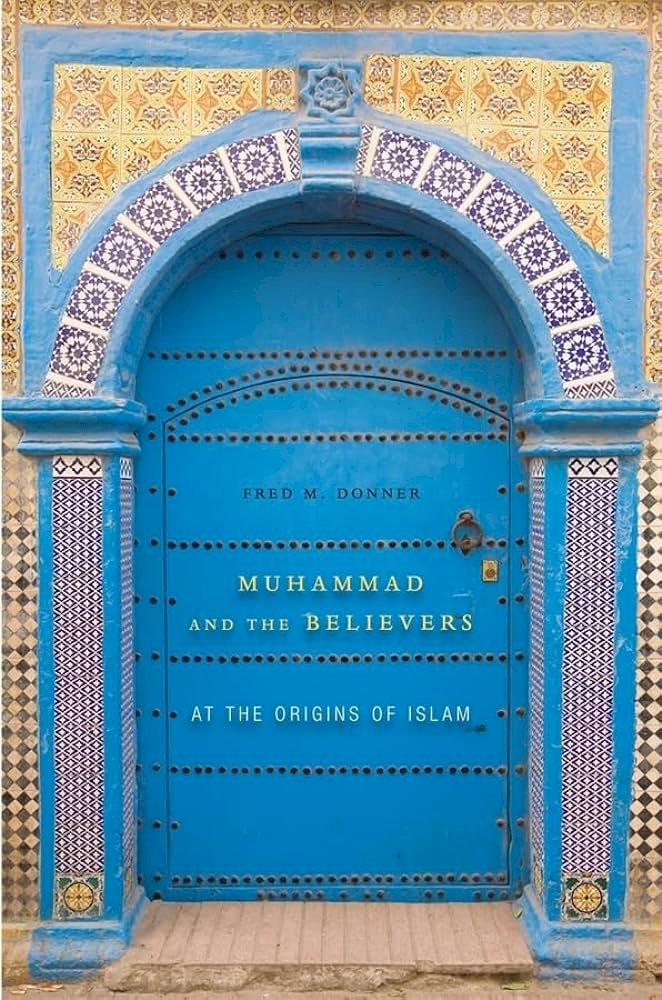
- Muhammad: A Prophet for Our Time
Muhammad: A Prophet for Our Time by Karen Armstrong[iv] presents Prophet Muhammad ﷺ as a figure of enduring relevance in today's world. She has characterized a way throughout the book which explains complex history in a way that many people can enjoy and learn from. In this book, the Prophet's ﷺ universal message of compassion, peace, and social justice has been emphasized. While enumeration these noble teachings of the Prophet ﷺ, she also attributes him to a spiritual leader whose transcending teachings are as relevant to the contemporary era as it was in 7th century Arabia. Not just that, the Prophet ﷺ has also been underscored as a peacemaker and a champion of the marginalized, who has beautifully highlighted his commitment to resolve conflicts through diplomacy and dialogue.
Moreover, exploring the Prophet's ﷺ life and the historical context he lived in, she authored another book namely Muhammad: A Biography of the Prophet. Years later she wrote this book which deeply delved into the holy character of the Prophet ﷺ, his trials, and transformative impacts on Arab societies. While reading the book, one would experience deep respect of the author for the subject matter, followed by the fact that she dispelled misconceptions and stereotypes in the perceptions of West about Islam and presented a nuanced and humanizing picture of the Prophet ﷺ before the West. However, some critics view this approach of Armstrong as sympathetic and idealized and thus her work is not reliable. Meanwhile, even when she did a good job shedding light on relevance of moral character and universal message of the Prophet ﷺ to the contemporary ambience, an extensive attention has not been paid to the complexities and historical context of the Arabia back in the 7th century.
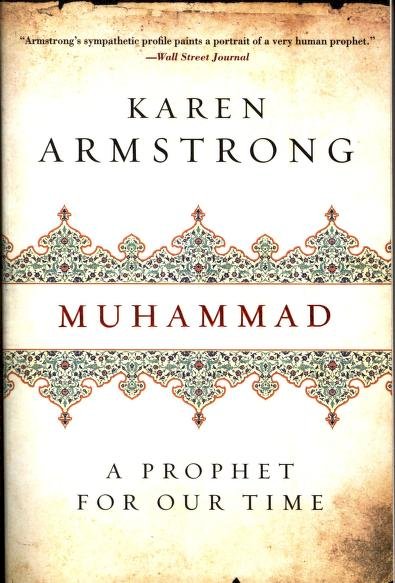
- Muhammad: Prophet and Statesman
Muhammad: Prophet and Statesman by W. Montgomery Watt[v] focuses Prophet Muhammad's ﷺ life, both as a religious leader and a statesman. While ensuring the multifaceted nature of the Prophet's ﷺ mission and impact on the early Islamic community, Muhammad: Prophet and Statesman presents a well-researched and balanced portrayal of the Prophet ﷺ. Alongside this, what sort of challenges were there in the context of 7th century Arabia when the Prophet ﷺ navigated the matters of tribalism, governance, and diplomacy, is what the book also highlights. The author throughout the book has not used overly technical language, so that it becomes accepted by a wide range of readers, even those who just want to learn about Islamic history and biography in general.
Certainly, W. Montgomery Watt, in addition to Muhammad: Prophet and Statesman, has authored two other significant books that contribute to the understanding of Prophet Muhammad's ﷺ life: Muhammad at Mecca and Muhammad at Medina. These books talk about the early years of the Prophet ﷺ in Mecca as well as his leadership in Medina. However, a point has to be made that even when Watt's books are considered to be contributing significant values to the study of Islamic history, they were written years back and thus additional research and scholarship would be in quest to reach to any certain conclusion or make any convincing point regarding the matter-in-question. Therefore, readers seeking the most up-to-date perspectives may want to complement Watt's books with more contemporary biographies and academic works on Prophet Muhammad ﷺ and early Islam.
- The Life of Mahomet: From Original Sources
The Life of Mahomet: From Original Sources by William Muir[vi] is one of the major references that has influenced how people in the West think about Islam and its founder. In this book, the author referred to the primary Islamic sources to construct a detailed narrative of the Prophet's ﷺ life and the early days of Islam. It is believed that Muir's portrayal of the Prophet ﷺ is marked by his critical and somewhat skeptical perspective. It is because when he gives any account of the events and individuals in the Prophet's ﷺ life, a certain tendency biases and misconceptions can be found prevalent in his interpretations. In fact, some of his approaches occasionally tend to be a bit critical evaluation in nature about the Prophet's ﷺ mission and character. This might not match what we expect from modern scholarship.
Moreover, Muir's writing sounds like it comes from the Victorian era when he wrote this book. This can make the book feel dense and somewhat challenging for contemporary readers. However it helps us understand how people in the 19th century felt about Islam and how Western scholars' ideas about the religion changed over time. It's essential to consider that The Life of Mahomet by William Muir is a product of its time and context. Even though it tells us important things about history, remember that it was written a long time ago by Western scholars in the 19th century, and it might have some biases and limits because of that. For a more balanced and contemporary understanding of Prophet Muhammad ﷺ and early Islamic history, readers may want to complement Muir's work with more recent and diverse sources.
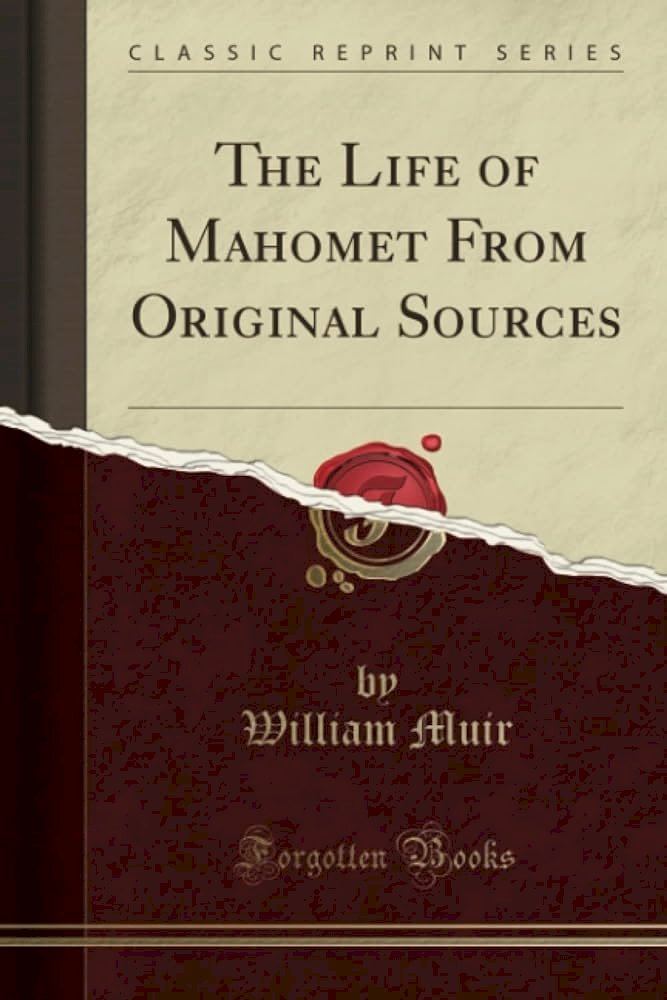
Conclusion
After reading these books, one can have huge impacts and bring valuable insights in his life. Not just that, he will also understand how these authors in particular and all the non-Muslims in general, have held viewpoints about the life and services of the Prophet ﷺ and to what extent they have varied in attending the aspects of Prophet's ﷺ life that might not receive as much attention in traditional Islamic literature. However, it is to be noted that even if these books are notable amongst the other books of non-Muslims, some aspects of their books have been criticized by the Muslim scholars and for potentially presenting distorted versions of the Prophet's ﷺ life.
To gain a more comprehensive understanding of the Prophet Muhammad ﷺ, it's advisable to complement these readings with books written by Muslim scholars. It is because Muslim-authored books often cover the spiritual aspects of his life along with giving extensive attention to his social and political life. Here are a few recommended books written by Muslim authors to explore the spiritual dimensions of Prophet Muhammad ﷺ:
- Muhammad: Man and Prophet by Adil Salahi - A detailed biography that provides insights into the life and character of the Prophet Muhammad ﷺ.
- The Life of Muhammad by Muhammad Husayn Haykal - This book covers various aspects of the Prophet's ﷺ life, including the spiritual dimension.
- Muhammad: His Life Based on the Earliest Sources by Martin Lings - Known for its eloquent portrayal, this book captures the spiritual essence of the Prophet's life.
- In the Footsteps of the Prophet: Lessons from the Life of Muhammad by Tariq Ramadan - This book explores the moral and spiritual lessons that can be drawn from the Prophet's ﷺ life.
- Ar-Raheeq Al-Makhtum (The Sealed Nectar) by Safi-ur-Rahman al-Mubarakpuri - A widely respected biography that provides an authentic account of the Prophet's ﷺ life, including his spiritual journey.
When you read books from both non-Muslims and Muslims, you can get a full picture of how the life of Prophet Muhammad ﷺ has been presented in the works of scholars. This helps you understand how different people see him and how important he is in Islamic and world history. In saying so, if you found something unhandy in the books of the authors, you can respond them back by writing them where did the fell pray of distorted information or inclination to heresy or at least have a perception how the Prophet ﷺ has been presented and prescribed, which still can have a positive impact in your life by mentally preparing yourself these things.
Endnotes
[i] Michael H. Hart (born 1932) is an American astrophysicist, author, and researcher known for his publications, including the best-selling work, The 100: A Ranking of the Most Influential Persons in History.
[ii] Juan Cole (born 1952) is an American academic and commentator renowned for his expertise on the modern Middle East and South Asia.
[iii] Fred McGraw Donner (born 1945) is the Peter B. Ritzma Professor of Near Eastern History at the University of Chicago, specializing in the study of Islam.
[iv] Karen Armstrong (born 1944) is a British author and commentator of Irish Catholic descent known for her books on comparative religion.
[v] William Montgomery Watt (1909 – 2006) was a Scottish Orientalist, historian, academic, and Anglican priest.
[vi] William Muir (1819 – 1905) is a Scottish Orientalist, colonial administrator, University of Edinburgh Principal, and Lieutenant Governor of the North-West Provinces of British India.
About the author
Sirajuddin Shaikh is a PG research scholar of the Department of Study of Religion at Darul Huda Islamic University, Kerala, India. His research areas include Islamic Studies, Study of human behavior, and Islamic psychology
Disclaimer
The views expressed in this article are the author’s own and do not necessarily mirror Islamonweb’s editorial stance.

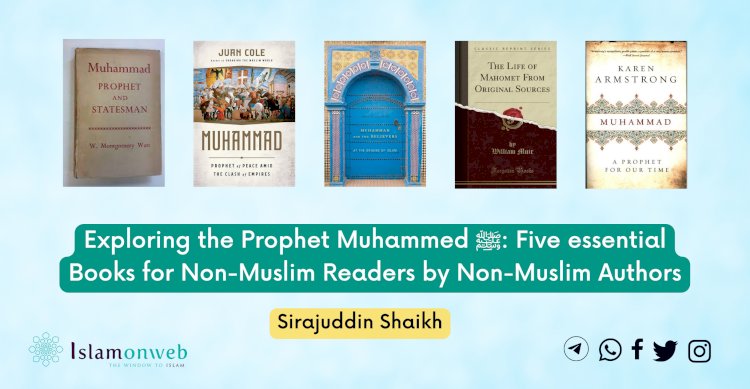



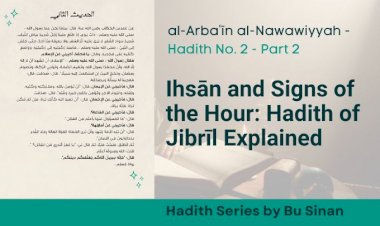
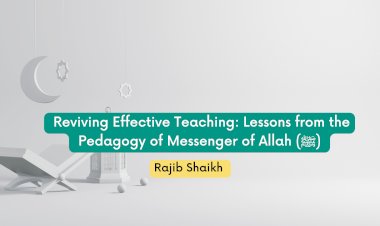
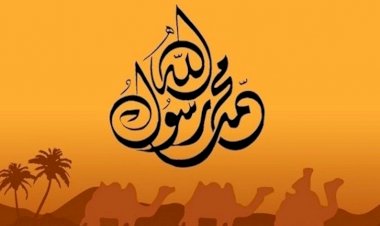
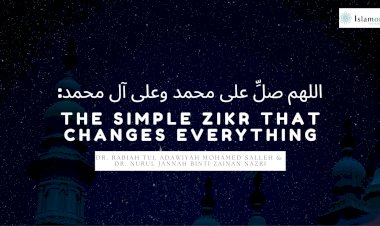
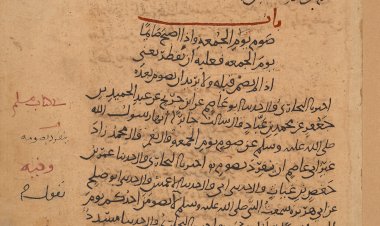
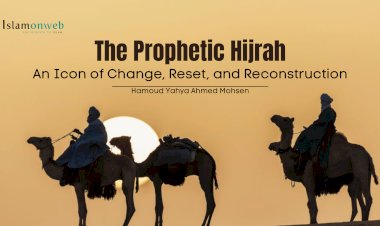














Leave A Comment